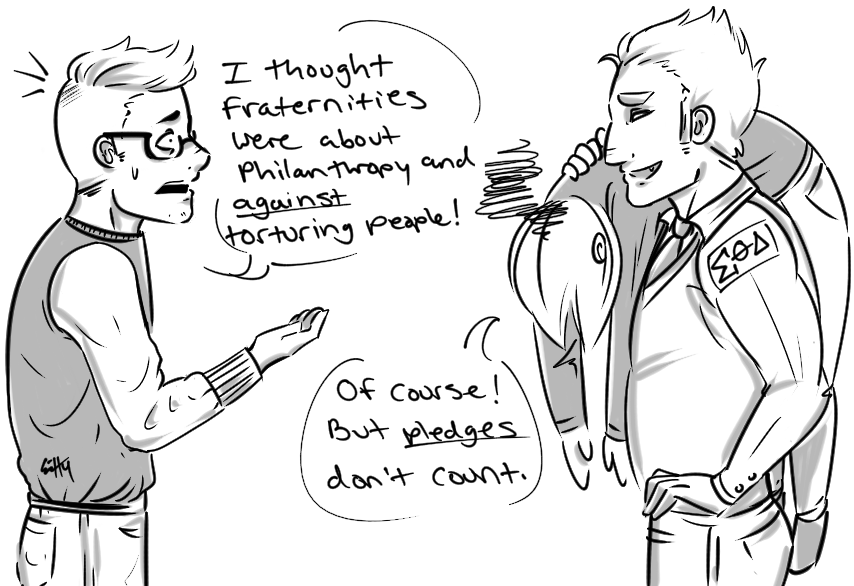Nolan Burch, a first-year student at West Virginia University, died Friday after being discovered unconscious at a fraternity house on Wednesday. Burch’s death marks WVU’s second fraternity-related incident in two weeks, calling for the indefinite suspension of all Greek organizations at the university.
These sorts of events call into question the ethics of Greek life and customs as a whole.
Although there has not been an official statement about the cause of Burch’s death, police have said they were called on Wednesday due to an alcohol-related incident. There have been reports that Burch was challenged to drink a considerable amount of liquor. This is not hard to imagine but is instead a sad reality that is all too common.
Everyone has an opinion about Greek life. Depending on who is speaking, Greek life can be good or bad, a waste of time or beneficial, irrelevant or necessary to the college experience. And, of course, there is the popular opinion that joining a fraternity or sorority constitutes “buying one’s friends.” Whatever a person’s opinion might be about Greek organizations, let’s see if we could all agree on at least one point: Hazing is not OK.
Unfortunately, this is wishful thinking, as there are a lot of people who disagree with this. I have had conversations with members of Greek organizations who defend hazing practices. Typically, their argument is that when a group is hazed together, it unifies them. Members of the group, such as a pledge class, are able to bond over their common struggle. Perhaps this is true, that it brings them together. But, it is a weak argument to say that this is the only, or even the best way to unite a group. Maybe it is the easiest way and probably the harshest, but certainly not the best way. Defending hazing assists to diminish the stigma attached to the practice, a stigma that would be better attached.
Greek organizations were created to instill leadership qualities in college students, but it seems this original intent has been lost drastically. There is still good that comes from the philanthropy aspect and the events truly intended as a way of giving back to the community, but when Greek life is mentioned the typical first thoughts are parties, drinking and hazing; the philanthropy hardly comes to mind.
The National Multicultural Greek Council has an anti-hazing statement included in its code of ethics. Despite this, hazing practices permeate universities across the country. Too often, fraternities, sororities and overseeing Greek councils are quick to cover up hazing and to brush it under the rug. The sad fact is that many Greek organizations succumb to hazing their pledges before they become members. It is an unfortunate cycle because those who do the hazing feel it is their right after being hazed themselves when they were pledges. But no matter how hard someone tries to justify it, hazing is not right, beneficial or acceptable. Making a person jump through ridiculous and potentially dangerous hoops before allowing him or her to be a part of the group is simply put childish. There is no need for this type of juvenile behavior to continue in college.
Although there are pledges who recognize that the hazing they have to undergo is ridiculous and end up dropping the fraternity/sorority, unfortunately, there are some who still desire to be a part of it. There are people who want to possess a sense of belonging in a group and will do whatever is required to attain that. But no organization is worth dealing with cruel demands that are potentially dangerous.
Greek organizations have a great potential to influence campuses and college towns in meaningful ways. Some sororities and fraternities, such as Phi Sigma Pi National Honor Fraternity, have already grasped this and have created an environment dedicated to service and community. But to change the overall reputation these organizations have, hazing has to end—not just get covered or ignored. Especially when lives, such as Burch’s, are affected, altered or ended as a result.
Pledges don't count












